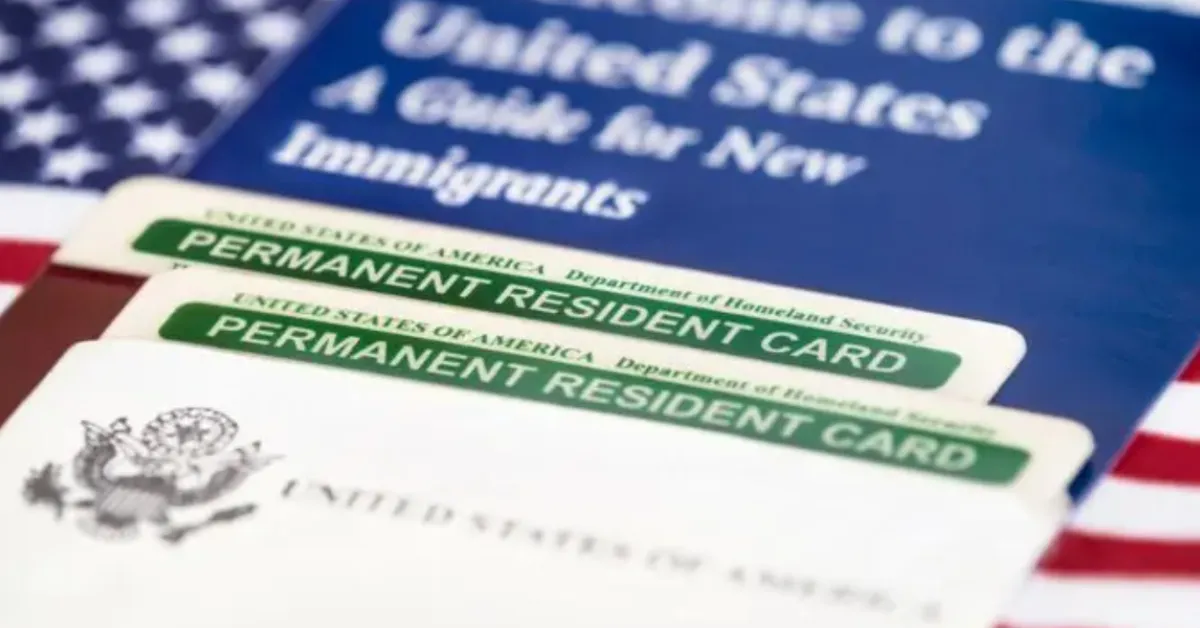USCIS Tightens Medical Exam Rules for Green Card Applicants

In a policy shift that could significantly impact green card applicants, the US Citizenship and Immigration Services (USCIS) has revised the validity rules for Form I-693, the medical examination report required for permanent residency applications.
Effective June 11, 2025, the form will no longer remain valid if its accompanying Form I-485, the application for adjustment of status, is denied or withdrawn. This reversal of a previous ruling has sparked concerns among immigration advocates over increased costs and potential processing complications.
The change, which was implemented without a transition period, mandates that Form I-693 is only valid for the duration of a single green card application. If USCIS rejects Form I-485, or if the applicant withdraws it, the accompanying medical report becomes void, necessitating a new examination for any future attempts. USCIS defends the policy reversal on public health grounds.
"By limiting the validity period to only the current immigration benefit application or request, we ensure that aliens get timely and proper medical examinations and treatment, which safeguards public health," the agency said.
This decision marks a significant departure from the previous policy, which had offered greater flexibility. Under an update from April 2024, Form I-693, if signed on or after November 1, 2023, would remain valid indefinitely, even if an individual applied for immigration benefits multiple times. This extended validity was predicated on advancements in electronic health data sharing, which allowed for more efficient tracking of medical compliance.
Policy Change Sparks Immediate Concerns
Immigration attorneys and advocacy groups have expressed concern over the abrupt nature of this policy change, which has left many applicants scrambling to adjust their filings.
"This is typical of the abrupt procedural changes we've seen in recent years," said Matt Cameron, an immigration lawyer based in Boston. "Previously, USCIS would at least offer a grace period for adjustments, but this change means that applications sent even a week ago could now be invalid."
Financial Strain and Added Requirements
Beyond logistical disruptions, the policy imposes a substantial financial strain on applicants. Immigration medical exams, conducted by USCIS-certified civil surgeons, include fees for physical assessments, lab tests, and vaccinations. These costs can vary by location and medical requirements, with many applicants facing expenses ranging from hundreds to over a thousand dollars for a single examination.
Adding to these challenges, USCIS introduced another key requirement in December 2024: all applicants must now submit Form I-693 alongside their green card applications, eliminating the previous option of responding to a Request for Evidence (RFE) later in the process. This requirement leaves applicants with little flexibility in navigating medical exam timing.
Form I-693 serves as evidence that an applicant meets US health standards. The form, completed by a USCIS-authorized civil surgeon, ensures compliance with medical admissibility criteria outlined in the Immigration and Nationality Act (INA), including vaccination requirements and screenings for diseases that could pose a public health risk.
Exceptions and Special Considerations
While the new policy applies broadly, certain applicants remain eligible for modified filing requirements. Refugees adjusting their status in the US, for example, only need to complete the vaccination section of Form I-693 if they previously underwent a medical evaluation abroad that found no serious health concerns. However, individuals flagged with Class A medical conditions must undergo a full domestic examination.
Additionally, USCIS has maintained an exception for Afghan nationals who arrived under Operation Allies Welcome. A policy enacted in November 2024 allows their medical examination records to remain valid indefinitely for adjustment of status applications, a benefit not extended to the broader immigrant population.
Additional USCIS Changes Impact Medical Filing Process
The revised Form I-693 rule comes amid other adjustments to the immigration medical examination protocol. Most notably, as of January 22, 2025, applicants are no longer required to provide proof of COVID-19 vaccination. The change follows a March 2025 update from the Centers for Disease Control and Prevention (CDC), which removed the requirement from its civil surgeon guidelines. Physicians processing Form I-693 are instructed to mark the COVID-19 section as "N/A" or cross it out entirely.
Further, a new edition of Form I-693, dated January 20, 2025, was released earlier this year. Until July 3, 2025, USCIS will accept applications filed using either the previous 03/09/23 version or the latest edition. After that date, only the 01/20/25 version will be accepted, requiring applicants to ensure they are using the correct form to prevent rejections.
Guidance for Green Card Applicants
Given the evolving medical examination policies, green card seekers must take a strategic approach to their filing process. Officials advise applicants to schedule their medical exams as close as possible to their Form I-485 submission date to avoid expiration-related complications. They should also ensure that exams are conducted by certified USCIS-designated civil surgeons, whose listings can be found on the USCIS website.
In adherence to submission rules, applicants must provide Form I-693 alongside their I-485 application rather than waiting for an RFE. Additionally, the medical report must be submitted in its sealed envelope, as USCIS does not accept opened or tampered documentation. Those undergoing exams should also bring government-issued identification and vaccination records, with translations provided if necessary.
Finally, applicants need to be mindful of form edition requirements. Beginning July 3, 2025, only the latest Form I-693 version will be accepted, making verification crucial to prevent avoidable application rejections.














Add new comment